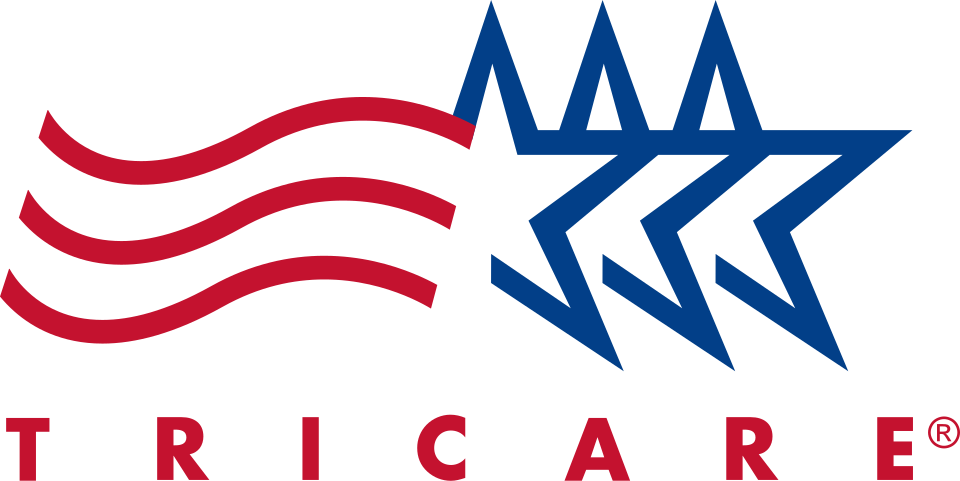In this comprehensive guide, we’ll explore the fundamentals of TRICARE, its benefits, different plan options, and eligibility requirements. Whether you’re an active-duty service member, a military spouse, or a veteran, understanding TRICARE can help you access the healthcare you deserve.
Understanding TRICARE: The Basics
TRICARE is a health care program for uniformed service members, retirees, and their families. Managed by the Defense Health Agency (DHA) under the U.S. Department of Defense (DoD), TRICARE provides comprehensive medical, dental, and pharmacy coverage. It also includes various plan options to suit different categories of beneficiaries.
In essence, TRICARE insurance serves as a blend of government-provided healthcare services and private insurance models. It delivers both direct care through military treatment facilities (MTFs) and outsourced care via a network of civilian healthcare providers.
TRICARE combines civilian and military health resources, offering:
- Routine medical care
- Specialty care
- Hospitalization
- Mental health services
- Dental and vision plans
- Prescription drug coverage
What Is TRICARE Insurance? A Closer Look
So, exactly what is TRICARE insurance? At its core, it’s a health insurance program designed to meet the specific needs of military families, with a focus on accessibility, flexibility, and affordability.
TRICARE isn’t a one-size-fits-all system. It includes multiple health plan options, some of which operate similarly to Health Maintenance Organizations (HMOs) and Preferred Provider Organizations (PPOs). Each plan varies in terms of cost, provider choice, and geographic availability.
Unlike typical commercial insurance, TRICARE ensures that those who have served or are serving in the U.S. military—and their dependents—receive quality care without excessive out-of-pocket costs.
Who Is Eligible for TRICARE?
TRICARE eligibility is based primarily on military status and family relationships. Here are the key groups who may qualify:
1. Active Duty Service Members
All active duty members of the:
- U.S. Army
- Navy
- Air Force
- Marine Corps
- Space Force
- Coast Guard
- Commissioned Corps of the Public Health Service and NOAA
These individuals are automatically enrolled in TRICARE Prime, which emphasizes care through military hospitals and clinics.
2. Family Members of Active Duty Members
Spouses and children (up to age 21 or 23 if full-time students) of active duty personnel are also eligible. They can enroll in:
- TRICARE Prime
- TRICARE Select
TRICARE Prime offers fewer out-of-pocket costs but requires using assigned providers, while TRICARE Select offers greater provider flexibility.
3. Retired Service Members and Their Families
Those who have retired from active duty and meet certain requirements are eligible for:
- TRICARE Prime
- TRICARE Select
- TRICARE for Life (if also eligible for Medicare Part A and B)
TRICARE coverage continues for qualified retirees and their dependents as long as they remain enrolled and meet eligibility requirements.
4. National Guard and Reserve Members
Members of the National Guard and Reserve may qualify for:
- TRICARE Reserve Select (TRS) – a premium-based plan for traditional members not on active duty
- TRICARE Retired Reserve (TRR) – for retired reservists under age 60
Their families may also be covered depending on the sponsor’s status and orders.
5. Survivors and Former Spouses
- Survivors: Families of deceased service members often retain eligibility.
- Former spouses: In some cases (e.g., 20/20/20 rule), divorced spouses may continue TRICARE coverage.
6. Medicare-Eligible Military Retirees
Once military retirees become eligible for Medicare (typically at age 65), they can transition to TRICARE for Life, which acts as a supplement to Medicare.
TRICARE Plan Options
TRICARE offers several plan types tailored to varying needs:
TRICARE Prime
- Least expensive option
- Requires Primary Care Manager (PCM)
- Referrals needed for specialist care
- Mostly for active duty and families
TRICARE Select
- More provider freedom (no referrals)
- Higher out-of-pocket costs
- Available to most non-active-duty beneficiaries
TRICARE for Life (TFL)
- Wraparound coverage for Medicare beneficiaries
- No enrollment fee (but must have Medicare Part B)
- Available worldwide
TRICARE Reserve Select
- For traditional reserve component members
- Requires monthly premium
- Similar benefits to TRICARE Select
TRICARE Retired Reserve
- For retired reservists under 60
- Premium-based coverage
TRICARE Young Adult (TYA)
- For dependent children aged 21–26
- Premium-based
- Two options: Prime and Select
US Family Health Plan
- An alternative to TRICARE Prime in specific regions
- Civilian providers, no MTFs
What Is Covered by TRICARE Insurance?
Now that we’ve defined what TRICARE insurance is, let’s explore what it covers. While benefits can vary slightly by plan, TRICARE generally includes:
Medical Services
- Preventive care (e.g., immunizations, wellness checks)
- Emergency and urgent care
- Inpatient and outpatient hospital services
- Specialist consultations
Mental Health Care
- Individual and family therapy
- Substance abuse treatment
- Psychiatric hospitalization
Prescription Drug Coverage
- Retail pharmacy (network and non-network)
- Mail-order service
- MTF pharmacy
Dental and Vision
- Available through add-on programs such as:
- TRICARE Dental Program (TDP)
- FEDVIP (Federal Employees Dental and Vision Insurance Program)
Enrollment and Costs
Enrollment
Most beneficiaries must enroll in a TRICARE plan. Enrollment can be completed:
- Online via the TRICARE Beneficiary Web Enrollment portal
- By phone
- Via mail (using TRICARE regional contractors)
Enrollment periods usually align with open season or qualifying life events (QLEs).
Costs
Costs depend on:
- Plan type (Prime vs. Select vs. Reserve)
- Sponsor status (active duty vs. retired)
- Service area
Generally, active duty members and their families pay little to nothing. Retirees and reservists often pay premiums, copayments, and deductibles.
Where Can You Use TRICARE?
TRICARE operates both in the U.S. and internationally. Beneficiaries can access care at:
- Military hospitals and clinics
- Civilian provider networks
- Overseas facilities (via TRICARE Overseas Program)
Three regional contractors help manage care:
- Humana Military – East Region
- Health Net Federal Services – West Region
- International SOS – Overseas
Why TRICARE Matters
TRICARE stands as one of the most comprehensive and accessible healthcare systems for military-connected individuals. It not only honors the commitment of service members but also supports their families by ensuring reliable, affordable healthcare.
Understanding TRICARE insurance empowers beneficiaries to make informed decisions, maximize their benefits, and seek care when needed without the financial strain common in many civilian healthcare plans.
Final Thoughts
Whether you’re preparing for enlistment, planning for retirement, or navigating life as a military spouse or dependent, understanding what TRICARE insurance is and how it applies to you is crucial. From basic preventive care to global health services, TRICARE is designed to provide robust, dependable coverage throughout the military lifecycle.



































